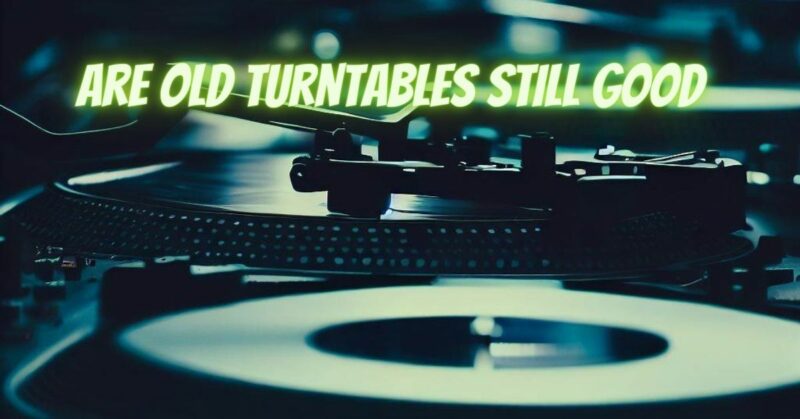With the resurgence of vinyl records, many music enthusiasts and audiophiles are drawn to the allure of vintage turntables. These older models possess a certain charm and nostalgia that captivates collectors and those seeking a unique audio experience. But the question remains: Are old turntables still good? In this article, we will explore the characteristics of vintage turntables and discuss their potential advantages and considerations.
Build Quality and Durability:
One notable aspect of old turntables is their often robust build quality. Vintage models, especially those from reputable brands, were built to last. They feature sturdy construction, high-quality materials, and precision engineering, resulting in a durable and reliable product. Many vintage turntables have withstood the test of time, proving their longevity and ability to deliver reliable performance.
Sound Quality and Analog Appeal:
Old turntables often have a distinctive sound character that some enthusiasts find appealing. The analog nature of vintage equipment, including the mechanical components and cartridge technology, can produce a warm and rich sound signature. This analog charm adds to the overall listening experience, providing a unique sonic texture that differs from modern digital playback.
Additionally, vintage turntables often utilize more substantial components, such as heavy platters, high-quality tonearms, and precision bearings, which can contribute to improved speed stability and reduced vibration. These factors, combined with the potential for manual adjustments and customization, can enhance sound quality and playback performance.
Maintenance and Upkeep:
While old turntables can offer excellent performance, it is crucial to consider the maintenance and upkeep required. Vintage turntables may need more attention and care compared to newer models. Components such as belts, cartridges, and styluses may require replacement or adjustment due to wear or age-related issues.
Regular maintenance, such as cleaning, lubrication, and calibration, is necessary to ensure optimal performance and longevity. It’s important to have access to a skilled technician or be willing to learn the necessary maintenance procedures if you choose to invest in an older turntable.
Connectivity and Modern Features:
One consideration with old turntables is their connectivity options and compatibility with modern audio systems. Vintage models may lack built-in preamps or have limited connectivity options, requiring additional components or adapters to integrate them into a modern setup. It’s essential to consider the compatibility of old turntables with your existing audio equipment and the availability of necessary accessories or adapters.
Availability and Rarity:
Vintage turntables, especially those from sought-after brands or specific models, can become rare and collectible over time. This rarity can contribute to their value and appeal for enthusiasts who appreciate the historical significance and craftsmanship of these older models. However, it’s important to research and evaluate the condition, availability of spare parts, and potential costs associated with acquiring and maintaining a vintage turntable.
Conclusion:
Old turntables can still offer an excellent audio experience, combining vintage charm, robust build quality, and unique sound characteristics. For those who appreciate the nostalgia and analog appeal of vinyl playback, vintage turntables can be a worthwhile investment. However, it’s important to consider the maintenance requirements, compatibility with modern systems, and availability of necessary components or accessories.
If you are considering purchasing an old turntable, thoroughly research the specific model, brand reputation, and potential maintenance needs. Take into account your own preferences, budget, and willingness to engage in the upkeep required to ensure the optimal performance and longevity of your vintage turntable.


